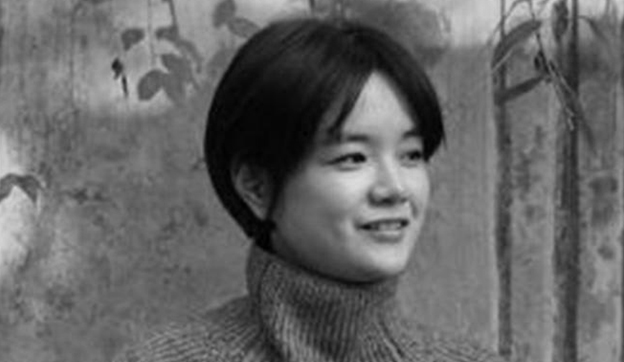애나 번스
(Anna Burns)는 현대 아일랜드 문학을 대표하는 작가로
, 1962년 북아일랜드 벨파스트에서 태어났다
. 태어나고 자란 지역과 시기가 북아일랜드 분쟁과 맞물리면서
, 그로 인한 많은 경험이 훗날 그녀의 작품 세계에 영향을 미쳤다
. 2001년 첫 소설
『노 본스
』(No Bones)를 발표하며 데뷔하였고
, 2018년에는 세 번째 장편 소설
『밀크맨
』(Milk Man)으로 북아일랜드 출신으로는 처음으로 맨부커 상을 수상하면서 세계적으로 널리 이름을 알리게 되었다
.
Anna Burns is a prominent author in contemporary Irish literature, born in 1962 in Belfast, Northern Ireland. Growing up during the Northern Ireland conflict, her experiences in this turbulent environment profoundly influenced her literary work. She made her debut in 2001 with her first novel, No Bones, and gained international recognition in 2018 when she became the first author from Northern Ireland to win the Man Booker Prize for her third novel, Milkman.
영국령인 북아일랜드에는 뿌리 깊은 분쟁의 역사가 있다
. 17세기 초
, 영국이 아일랜드를 점령하고 식민지로 삼으며 시작된 분란은
1948년 아일랜드가 독립하여 공화국의 지위를 얻으며 일단락된 듯했다
. 그러나 북아일랜드는 아일랜드 공화국에 참여하지 않고 영국 연합으로 남았는데
, 그중 노동자층으로 살아가던 다수의 가톨릭계가
1960년대 말부터 아일랜드와의 통일을 위해 무장 투쟁을 시작했다
. 그리고
1998년 영국과 아일랜드의 양측 합의하에
‘성 금요일 합의
’라는 평화협정이 체결될 때까지 수십 년간 테러와 무력 충돌이 반복되어 수천 명의 목숨을 앗아갔다
.
Northern Ireland, a British territory, has a deeply rooted history of conflict. The turmoil began in the early 17th century when Britain occupied Ireland and established it as a colony. Although the conflict seemed to have subsided when Ireland gained independence and became a republic in 1948, Northern Ireland chose to remain part of the United Kingdom rather than joining the Republic of Ireland. In the late 1960s, many within the Catholic working class in Northern Ireland began an armed struggle for reunification with Ireland. This led to decades of terrorism and violent clashes that claimed thousands of lives until a peace agreement, known as the Good Friday Agreement, was reached in 1998 between the British and Irish governments.
북아일랜드의 이런 역사적 배경 속에서 자라난 애나 번스가 자신의 작품을 통해 자신이 목도한 분쟁의 실상을 다룬다는 건 어찌 보면 너무도 당연한 일일지 모른다
. 맨부커상 수상 후
, 어느 언론과의 인터뷰에서 자신의 어린 시절에 대해 이야기하며 작가는
“(꼭 분쟁으로 인한 유혈사태가 아니더라도
) 항상 너무 많은 폭력이 넘쳐났다
”고 말했다
. 어른이며 아이며 개며
, 모두들 저마다 길에서 누군가와 싸우던 시절이었고
, 길거리에 핏자국이 곳곳에 있었다고 말이다
.
Given this historical context, it is almost inevitable that Anna Burns, who grew up during this period in Northern Ireland, would address the realities of the conflict she witnessed in her writing. After winning the Man Booker Prize, the author spoke about her childhood in an interview, noting that “there was an awful lot of violence” in her community, even when it wasn’t directly related to the conflict. She described how everyone—adults, children, even dogs—seemed to be fighting in the streets, which were often stained with blood.
그런데 애나 번스의 작품은 북아일랜드 분쟁이라는 참혹한 역사적 사건에 대한 사실주의적 진술이 아니라 그로 인해 기괴하게 변모한 디스토피아적 공동체
, 그리고 그 속에 존재하는 사회적 억압과 개인의 심리 상태에 주목한다
. 대표작인
『밀크맨
』의 경우
, 작가는 의도적으로 시대나 장소를 특정하지 않는다
. 때문에 구체적인 지명이나 고유명사가 등장하지 않는다
. 마찬가지로 영국과 북아일랜드 투쟁 세력으로 유추할 수 있는 세력 간의 유혈 분쟁도 중요한 사건으로 다뤄지지 않는다
. 이러한 익명성을 전략으로 하여 작가는 소설 속에서 길을 걸으며 책을 읽는 독특한 습관이 있는
, 이름도 없이
‘가운데 언니
’(middle sister)라 등장하는 주인공 열여덟 살 소녀가 그가 속한 억압적 분위기의 공동체에서 어떤 성적
, 심리적 폭력에 노출되어 있었는지를 심도 있게 탐구하는 데 중점을 둔다
. 그리하여 분쟁의 역사 속에서 실재했으나 주목받지 않았던
, 보이지 않았던 존재들의 목소리가 비로소 독자들에게 전달된다
. 소설 속의 시공간이 특정되지 않으면서
, 그 안에서 벌어지는 일상적 폭력 또한 보편적 차원으로 환원되어 성큼 더 깊이 독자들에게 다가온다
.
However, Anna Burns' works do not present a realist account of the traumatic historical events of the Northern Ireland conflict. Instead, they focus on the dystopian communities grotesquely transformed by the conflict, exploring the social oppression and the psychological states of individuals within these communities. In her acclaimed novel Milkman, for instance, Burns deliberately avoids specifying the time and place, resulting in a narrative devoid of concrete names or landmarks. Similarly, the violent clashes between forces that could be interpreted as the British and Northern Irish factions are not central to the story. By employing this strategy of anonymity, Burns delves into the experiences of her protagonist, an 18-year-old girl referred to only as "middle sister," who has a peculiar habit of reading while walking. The novel focuses on how she is exposed to sexual and psychological violence within the oppressive atmosphere of her community. Through this exploration, the voices of those who were real yet overlooked and invisible within the historical context of the conflict are finally conveyed to the readers. By not pinpointing the specific time and space in the novel, the everyday violence depicted gains a universal dimension, resonating more profoundly with the audience.
이호철통일로문학상은
“전 지구적 차원에서 일어나고 있는 분쟁
, 여성
, 난민
, 폭력
, 전쟁 등으로 인해 생기는 문제를 사유하고 극복할 수 있는 문학적 실천을 보증
”하는 것을 가치로 내걸고 있다
. 올해 제
8회 이호철통일로문학상 본상위원회는 그에 부합하는 문학적 가치와 의의를 애나 번스의 작품 세계에서 찾았다
. 일상적으로 난무하는 여러 층위의 폭력
, 개인의 정신을 지배할 정도로 억압적인 사회 분위기 등
, 애나 번스가 소설을 통해 다룬 분쟁 이면의 문제들이 비단 북아일랜드에 국한된 문제가 아니라는 건 분명하다
. 오히려 그것은 일본에 의한 식민지 점령과 이후 수십 년의 군사 독재 정권 시대를 경험한 한국의 근현대사를 바탕으로 보더라도 정서적으로 그리 낯설지 않다
. 폭력의 위험성은 그만큼 전방위적이며 보편적이라는 것을 그의 작품은 너무나도 잘 보여주고 있다
.
The Lee Hochul Literary Prize for Peace is committed to endorsing “a universal literary practice that reflects on and seeks to address global issues such as conflicts, gender, refugees, violence, and war." This year, the Selection Committee for the 8th Lee Hochul Literary Prize for Peace recognized these literary values and significance in the works of Anna Burns. The issues Burns explores in her novels—such as the multiple layers of violence that permeate everyday life and the oppressive social atmosphere that dominates individual minds—clearly extend beyond the context of Northern Ireland. In fact, these themes are not unfamiliar when viewed against the backdrop of Korea's modern history, which includes the period of Japanese colonial rule and the subsequent decades of military dictatorship. As such, Anna Burns’ works powerfully illustrate how the dangers of violence are pervasive and universal.
 애나 번스(Anna Burns)는 현대 아일랜드 문학을 대표하는 작가로, 1962년 북아일랜드 벨파스트에서 태어났다. 태어나고 자란 지역과 시기가 북아일랜드 분쟁과 맞물리면서, 그로 인한 많은 경험이 훗날 그녀의 작품 세계에 영향을 미쳤다. 2001년 첫 소설 『노 본스』(No Bones)를 발표하며 데뷔하였고, 2018년에는 세 번째 장편 소설 『밀크맨』(Milk Man)으로 북아일랜드 출신으로는 처음으로 맨부커 상을 수상하면서 세계적으로 널리 이름을 알리게 되었다.
애나 번스(Anna Burns)는 현대 아일랜드 문학을 대표하는 작가로, 1962년 북아일랜드 벨파스트에서 태어났다. 태어나고 자란 지역과 시기가 북아일랜드 분쟁과 맞물리면서, 그로 인한 많은 경험이 훗날 그녀의 작품 세계에 영향을 미쳤다. 2001년 첫 소설 『노 본스』(No Bones)를 발표하며 데뷔하였고, 2018년에는 세 번째 장편 소설 『밀크맨』(Milk Man)으로 북아일랜드 출신으로는 처음으로 맨부커 상을 수상하면서 세계적으로 널리 이름을 알리게 되었다. 1983년 서울에서 태어났으며 대학에서 문예창작을 공부했다. 본명은 김은영. ‘김멜라’는 필명으로, ‘찌그러지게 한다’는 뜻의 제주도 방언 ‘멜르다’에서 따온 것이라고 한다. 2014년 작품 활동을 시작하여 올해로 데뷔한 지 10년이 되었다. 4년 연속 ‘문학동네 젊은작가상’ 수상이란 경력이 증명하듯, 현재 한국 문단의 젊은 작가 중에서도 앞으로의 활동이 가장 주목받는 작가 중 한 명이다.김멜라는 2014년 『자음과 모음』 신인문학상을 통해 등단하였는데, 2020년 첫 소설집 『적어도 두 번』으로 존재감을 드러내기 전까지 약 6년간 무명에 가까운 상태로 글쓰기와 생계를 병행하는 고된 시기를 보냈다고 한다. 이후 단편 「나뭇잎이 마르고」로 2021년 제11회 문지문학상을, 2022년에는 「제 꿈 꾸세요」로 제23회 이효석문학상을 수상하면서 평단과 대중 모두의 인정을 받는 작가로 자리매김했다. 2024년에는 단편 「이응 이응」으로 젊은작가상 대상을 받았고, 같은 해 발표한 첫 장편 『없는 층의 하이쎈스』로 제8회 이호철통일로문학상 특별상 수상자가 되었다.
1983년 서울에서 태어났으며 대학에서 문예창작을 공부했다. 본명은 김은영. ‘김멜라’는 필명으로, ‘찌그러지게 한다’는 뜻의 제주도 방언 ‘멜르다’에서 따온 것이라고 한다. 2014년 작품 활동을 시작하여 올해로 데뷔한 지 10년이 되었다. 4년 연속 ‘문학동네 젊은작가상’ 수상이란 경력이 증명하듯, 현재 한국 문단의 젊은 작가 중에서도 앞으로의 활동이 가장 주목받는 작가 중 한 명이다.김멜라는 2014년 『자음과 모음』 신인문학상을 통해 등단하였는데, 2020년 첫 소설집 『적어도 두 번』으로 존재감을 드러내기 전까지 약 6년간 무명에 가까운 상태로 글쓰기와 생계를 병행하는 고된 시기를 보냈다고 한다. 이후 단편 「나뭇잎이 마르고」로 2021년 제11회 문지문학상을, 2022년에는 「제 꿈 꾸세요」로 제23회 이효석문학상을 수상하면서 평단과 대중 모두의 인정을 받는 작가로 자리매김했다. 2024년에는 단편 「이응 이응」으로 젊은작가상 대상을 받았고, 같은 해 발표한 첫 장편 『없는 층의 하이쎈스』로 제8회 이호철통일로문학상 특별상 수상자가 되었다.
